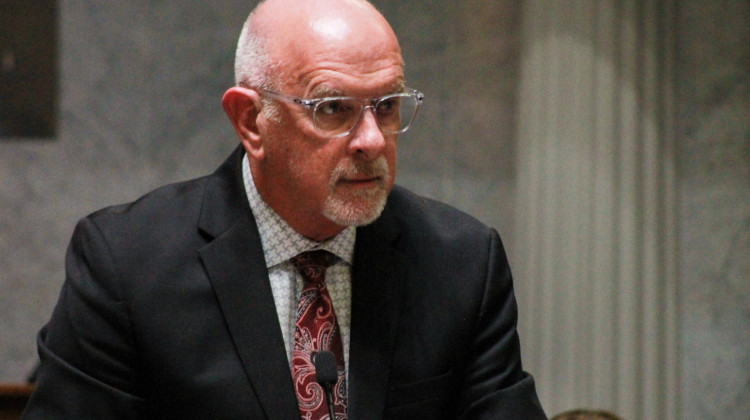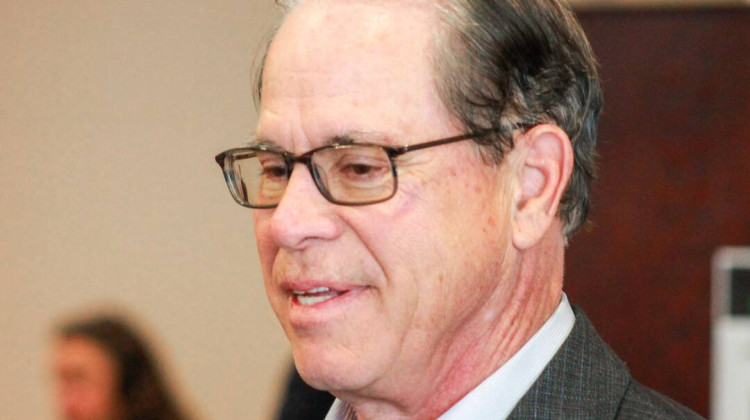
House Public Health Committee Chair Brad Barrett (R-Richmond) said the previous legislation had an issue that meant payments for services provided in “good faith” were not making it to facilities or providers.
Lauren Chapman/IPB NewsThe House Public Health Committee unanimously passed a bill that would allow physicians to base an application for emergency detention off of information given to medical staff.
An emergency detention is used when someone who is mentally ill is “involuntarily" detained for care or treatment.
In order for someone to be detained in this way, a physician has submit an application saying there is probable cause that the individual is “mentally ill and either dangerous or gravely disabled” and the involuntary detention is required.
The proposal builds on legislation from last year that set up the process for how people who are arrested should be evaluated, treated and potentially committed for mental illness.
House Bill 1216 would allow information from family, friends or caregivers to be the basis of an emergency detention order request, rather than requiring an examination to be the basis.
Beth Keeney, the president and CEO of LifeSpring Health Systems, said in the past she was “forced” to refer patients to law enforcement for mental health help, but law enforcement wasn’t able to step in until there was a problem that “required their intervention.”
“Unfortunately, my advice to a scared parent of a very sick child was ‘Wait until your kid gets sicker,’” Keeney said.
Join the conversation and sign up for the Indiana Two-Way. Text "Indiana" to 765-275-1120. Your comments and questions in response to our weekly text help us find the answers you need on statewide issues, including our project Civically, Indiana and our 2024 legislative bill tracker.
Keeney said that both behavioral health providers and law enforcement should have access to this process.
The bill would also require Medicaid reimbursement for services “regardless of medical necessity criteria.” House Public Health Committee Chair Brad Barrett (R-Richmond) said the previous legislation had an issue that meant payments for services provided in “good faith” were not making it to facilities or providers.
Michael Moore, the assistant executive director at the Indiana Public Defender Council, said guaranteeing reimbursement supports the work done in the space last year.
“This goes a long way with continuing the efforts to take people out of the criminal justice system who are in crisis and instead treat them within the medical system as more appropriate,” Moore said.
Lawmakers said the intent of the bill is to close the payment “loophole.”
Abigail is our health reporter. Contact them at aruhman@wboi.org.
 DONATE
DONATE






 Support WFYI. We can't do it without you.
Support WFYI. We can't do it without you.